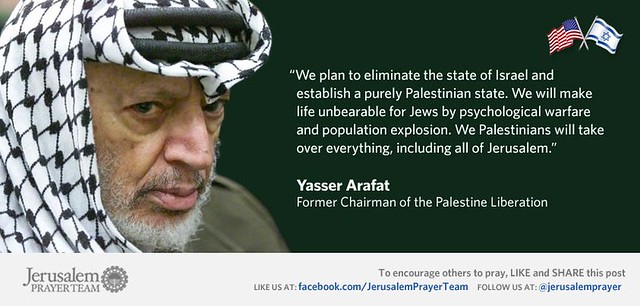
Just like Arafat in the 1970s, Hamas has a very broad
base of external support that is entirely indifferent to the rights and wrongs
of the conflict. For Arafat, it was the Soviet Union with all its satellites except
recalcitrant Romania. The Middle East was then the focus of Soviet global
strategy, and the Moscow leadership had become convinced that it could best
out-influence the United States by uncritically supporting Arafat and the
Palestinians. From his Soviet support base, Arafat therefore obtained
unstinting diplomatic support at the United Nations as well as arms, but only
to discover that U.N. hot air is only hot air, while weapons would only get
himself and his men into trouble. But the huge drawback of Soviet support was
that it positioned Arafat as an antagonist of the United States, the only power
that could have advocated for him with Israel, as it did for Egypt and Jordan.
For Hamas the broad base of uncritical
external support is even broader, stretching from Dearborn, Mich., to Islamabad
and beyond. In vehemently siding with Hamas, Muslim opinion is not moved by
mere religious solidarity. It
is rather that Israel’s superior strength in war presents a very personal
problem for each believing Muslim, and Hamas seems to offer a remedy. It all
starts with Islam itself, as a faith originally validated by the immense
conquests of the first Muslims. The Quran is replete with categorical promises
of victory for true believers, and Islam as a religion still rests on those
promises—there is not much there for the meek or the weak. Hence the unending sequence of
Muslim defeats of the last century and more generates terrible inner doubts
about the truth of Islam—doubts now vented in many varieties of violence
in a great many places from Mindanao and southern Thailand to Niger and
Nigeria, and not just across South Asia and the Middle East. In almost all of
these conflicts, enemies perceived as Christian, Buddhist, Hindu, or Jewish
keep winning, aggravating inner doubts and outward aggression.
Defeats
inflicted by Jews are an even more acute problem, because in the Quran they are
written off as weaklings, easily defeated—so that making victorious heroes out of
Hamas, which defines itself as Islamic rather than Palestinian, is some sort of
remedy. Its video re-enactments of the August 2014 fighting, featuring pathetic
Israeli soldiers bursting into tears before being killed or surrendering meekly
to the noble warriors of Hamas have been wildly popular, while rioting
demonstrators in Berlin and Paris in August 2014 comforted themselves with
shouts of “Remember Khaibar!” evoking Muhammad’s conquest of the Jewish oasis
of Khaibar in the year 629—thus testifying both to their collective historical
memory and also to the dearth of notable Muslim victories over Jews over the
last 1,385 years.
But for Hamas, this global Muslim support,
however gratifying it might be, is just as damaging as Soviet support was for
Arafat during all the years when he was at the peak of his political fortunes,
and might have gained a state within the West Bank and Gaza by making the
necessary compromises with Israel, Jordan and Egypt, with American support.
What Hamas can achieve in this world is to
keep what it has—the control of Gaza by force of arms if not consent—and then
to develop Gaza in every possible way by soliciting aid and investment and
securing easy access in and out by rigorously abjuring any form of violence
against its two neighbors, Israel and Egypt. Soon enough, in its rising
prosperity, Gaza would have both a port and airport, instead of blockades and
tunnels. There are eager donors and all else needed is available, notably
Israeli and Egyptian reciprocity. But of course Hamas would be abjuring global
Islamic support, and would immediately have to fight it out with Islamic Jihad,
which serves Iran and has no interest at all in peace.
That global Islamic support at the United
Nations—and everywhere else from Sweden to Sydney—makes and will make
absolutely no difference to the misery of everyday life in Gaza, should be the
decisive consideration for responsible leaders. But just as Arafat kept
sacrificing the living Palestinians for the sake of his own idea of Palestine
as he jetted around the world, Hamas leaders will ruthlessly sacrifice the people of Gaza for Islam,
not without rewards for themselves (Gulf money is pouring in) to assuage
the pain. The tranquility of the West Bank, and the loyalty of Israel’s Arab
citizens throughout 50 days of hard to watch fighting, show that they know very
well what Hamas has to offer: death, destruction, and failure.


No comments:
Post a Comment